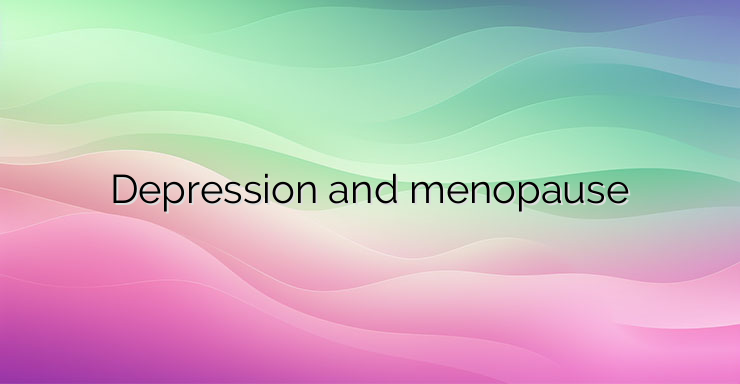Women appear to be particularly vulnerable to depression during the perimenopausal period and in the years immediately following menopause. There are theories as to why women are twice as likely to suffer from depression during this period. One theory is that there is a “window of vulnerability” so that some women are more sensitive to the hormonal changes that occur during perimenopause, putting them at greater risk of depression. In addition, women at greatest risk are those with a history of depressed mood earlier in life. Emotional health during perimenopause requires a balance between self-care and the responsibilities of work and caring for others. Many women are able to identify and describe the sources of tension and stress symptoms, yet they may find it difficult to take time for themselves. Recognizing the problem is the first step to finding ways to deal with it. Although many of the factors cannot be changed, coping skills can help women deal with life’s challenges and create a renewed sense of self-esteem, balance and harmony. Some women may also benefit from lifestyle adjustments, including a balanced diet and regular exercise. Major depression is a condition related to a chemical imbalance in the brain, and the change in hormones during perimenopause can be related to this imbalance. It is characterized by symptoms such as persistent fatigue, lack of energy, loss of interest in normal activities, sadness, irritability, sleep disturbances, agitation, weight changes and decreased sex drive. Although most women at some point in their lives experience these symptoms from time to time, they must last more than 2 weeks to suggest major depression. Symptoms lasting more than 2 weeks suggestive of major depressive disorder may include: Persistent sadness, anxiety; A feeling of hopelessness or pessimism, irritability; Feelings of guilt, worthlessness, or helplessness; Loss of interest or pleasure in hobbies and activities; Decreased energy or fatigue; You feel restless or find it difficult to stand still; Difficulty concentrating, remembering or making decisions; Difficulty falling asleep, waking up early in the morning, or oversleeping; Changes in appetite and/or weight; Thoughts of death or suicide, or suicide attempts; Pain, headaches, cramps, or digestive problems with no clear physical cause and/or symptoms that do not improve even with treatment. For severe depression, antidepressants or cognitive-behavioral psychotherapy can correct the chemical imbalance. Most women will show marked improvement with antidepressants and have relatively few side effects, although it may take several weeks for the full effect of the medication to take effect. Common side effects include weight gain and decreased sexual desire and arousal. It has also been proventhat cognitive behavioral therapy effectively treats depression in some women. Antidepressants are most effective when used in combination with psychotherapy. For some people, psychotherapy without drugs may not be as effective. Estrogen has also been shown to significantly improve mood in some women during perimenopause. Some doctors recommend systemic estrogen therapy for women with symptoms of depression during menopause. This may be recommended for women who are unable or unwilling to take antidepressants, or both therapies may be used in combination if antidepressants alone are insufficient. References: www.menopause.org


Leave a Reply